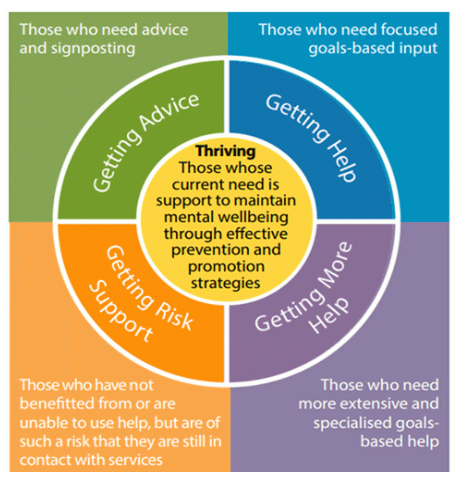
There are a range of services available to support children and young people with emotional wellbeing and mental health needs.
To help you find the right service for your need we have organised the services available based on levels of need and have used the Thrive Framework to help you navigate and find the right support.
The Thrive Framework
The Thrive framework has divided the services into four categories which include:
- Getting advice and information
- Getting help
- Getting more help
- Getting risk support
See links below.
Getting advice and information
Advice and signposting for children and young people with mild or temporary difficulties, or those who are managing their own health or who are on the road to recovery.
Getting advice and information
Getting help (community services)
Help and advice for children and young people who have mild to moderate mental health problems and who would benefit from support from community services.
Getting help
Getting more help (specialist services)
Support for children and young people who need more extensive intervention, such as those with complex needs or those unable to participate in everyday activities.
Getting more help
Getting risk support (highly specialist services)
Support for for children and young people who remain a significant concern and risk despite extensive input.
Getting risk support